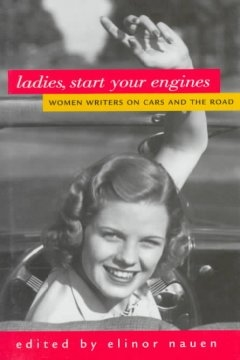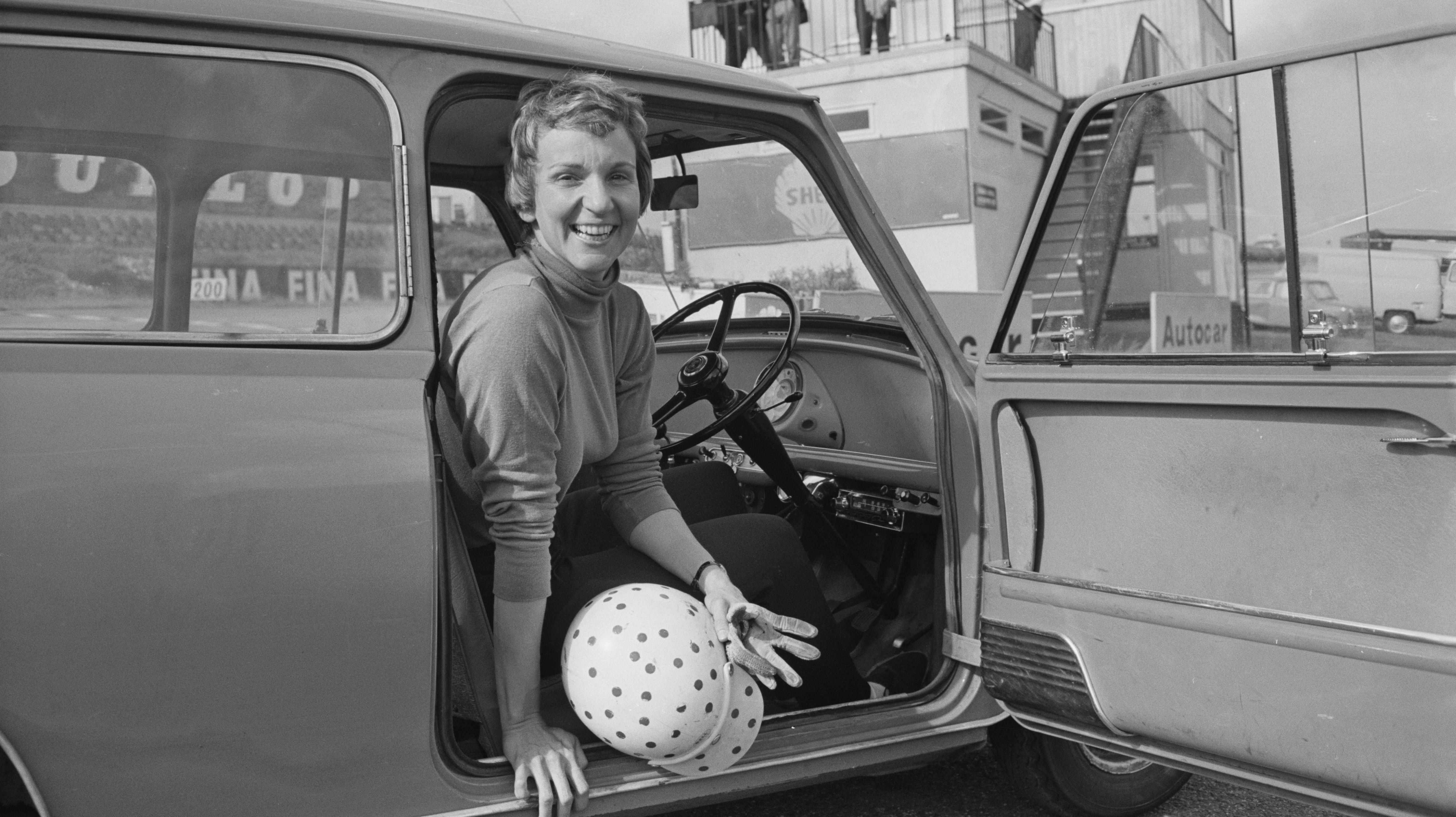Ladies, Start Your Engines Is An Incredible Collection Of Stories On The Way Women Relate To Cars
Nauen's book highlights power, disenchantment, romance, and pain.
Women and cars have proven to be an inseparable duo over the years. While the automobile signifies freedom for men, it does so especially for women, who saw the introduction of vehicles as a sign of liberation, one that let them venture beyond the confines of the home or the farm and become players in the wider world, able to eat up longer distances and conquer different roads. And that's exactly where Elinor Nauen's Ladies, Start Your Engines comes into play.
This isn't (completely) a work of nonfiction, so it's not a comprehensive history of the benefits that accompanied women beginning to drive. In fact, Nauen isn't even the author, instead serving as an editor and collater for the stories of other women — fiction, nonfiction, and poetry. It's a place where female authors have been gathered to share their experiences and fascinations and imaginations with the road and the cars that have allowed us to traverse them.

The book is split into three parts that aren't obviously separated by theme but the contents of which all seem to run along the same lines. In the first part, women are just getting on the road for the first time, often in bygone eras where highways had yet to be built (the first excerpt of the book is actually a poem from Emily Dickinson, who died before the widespread adoption fo vehicles but whose descriptions of a train in motion resonated so strongly with driving that Nauen admits she couldn't help but include it). The second section follows some of the horrors of driving, the deaths and crashes and pain that vehicles can cause. The third and final section isn't quite as obvious but seems to focus on the way cars impact relationships.
Whatever the case, you don't really need themes to guide you through the work. The human mind just likes to make connections.
Nauen writes in the intro that she's focused largely on shorter works, since it's a pain to excerpt larger pieces of fiction, like novels — she throws in some recommendations for those longer books, though, for interested parties (many of which now appear to be out of print).
The authors included in the book range from literary icons like Flannery O'Connor and Emily Dickinson to journalist legends like Denise McCluggage to folks I've never heard of before but whose writing swept me up that I found myself trying to hunt down more of their works.
One of my personal favorites, though, was a personal essay from Emily Post, who most people know as being that woman who wrote a whole book on appropriate manners and female etiquette back in the early 1900s. She doesn't seem like the kind of person who'd be an apt candidate to get behind the wheel of a rickety, uncomfortable early-20th-century car that doesn't have a windshield while traversing roads that are more mud and sand than easily covered tarmac. Post is funny and charming, offering advice on the appropriate headwear for the lady driver since, as we all know, no respectable woman leaves the house without a hat, but the very nature of driving makes a head covering quite difficult.
The short excerpts make this book feel like it passes at a rapid clip because it's so easy to devour a few pages of writing and then move onto the next piece, at which point the following poem beckons because it'll be such a fast read that hardly any time will pass at all.
Ladies, Start Your Engines is totally different than pretty much anything else I've ever read or reviewed for Jalopnik because there's no history or story behind it that I can tell, no familiar tale that can ground readers and interest them. Instead, the beauty of this book comes from the fact that it is a very loose connection of whirlwind pieces that don't always follow a comprehensive storyline. Rather, you get the pleasure of experiencing so many different ways of relating to the automotive world.
Some stories, for example, are about how much women hate driving and have only done it reluctantly, with a lot of grinding gears and anxiety. Others are about the freedom of barreling down the interstate with a big, beefy V8 engine and watching people clear a path before you because in real life your five feet tall and wholly unintimidating. Still others recount the pain that comes with losing a best friend or a lover in an accident, or about getting lost in the world of motorsport. There's even one satirical play about families living out of their cars during some sort of apocalyptic nightmare where the most important part of every day is being called on the phone to be polled on your thoughts and feelings.
With every turn of the page, you'll be in for a new surprise, which is what makes Ladies, Start Your Engines such a damn good book.
